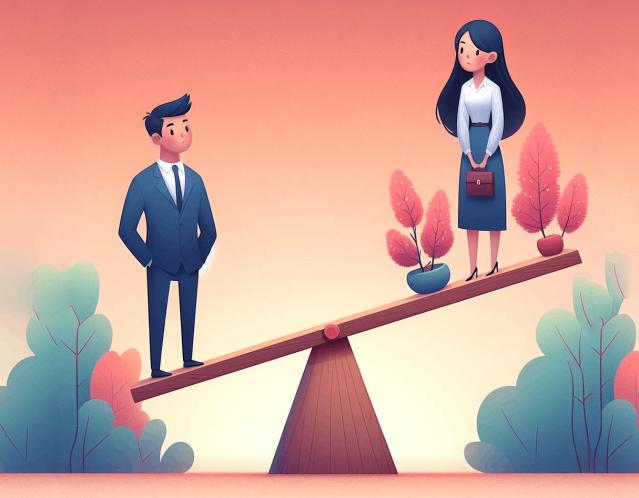A new Study published in a journal called Nature shows that online images enforce more Gender biases than texts. It could be seen as an example that most of the images online show men as doctors and women as nurses. This type of content is responsible for maintaining stereotypes between men and women on the basis of their gender. Images are a great source of seeing different things around the world and they are also important for interactions between humans in today’s world. But the images shown on the internet are always under-representing women and showing men as a superior gender.
The lead author of this study, Douglas Guilbeault, says that this situation is so alarming because it can shape how we think about a certain gender. The co-author of the study, Solene Delecourt, says that if a child is trying to look for a one profession but only a picture of one gender, the child would feel like they don’t belong to a certain gender. This type of content is not only enforcing stereotypes on women, but also on men. Images are also more emotive and memorable than texts so it is highly likely that children searching for these things will keep them in their subconscious.
This study was done by looking into more than one million pictures on Google, Wikipedia, IMDB and through thousands of words online. Gender biases were seen in the pictures that belonged to about 3,000 social categories like doctors or lawyers, and roles like neighbor or colleague. Both of these categories were representing men. This research did not only show the gender biases in the US because the researchers also studied different images from different websites and platforms all around the world. But the results were mostly showing the same biases.
The study team then analyzed US census data, revealing disparities between the gender representation depicted in biased online images of various occupations and the actual demographic reality. The psychological impact of these biases was also studied. The team asked 450 people to search for different online jobs like astronaut, poet, teacher etc. Some were asked to read texts while the others were asked to see images. Then, the participants were asked to answer some questions on a test.
The participants who looked at images showed more bias than participants who looked at texts. The results were still the same after three days when the participants were asked about this again. This shows that images are highly responsible for influencing humans and shaping the way they think about specific gender. As many AI image generators use online images to generate AI based images, this situation is highly alarming.
Read next: Why Your Website's Ranking Dropped In Search Results: Insights from Google's Danny Sullivan

